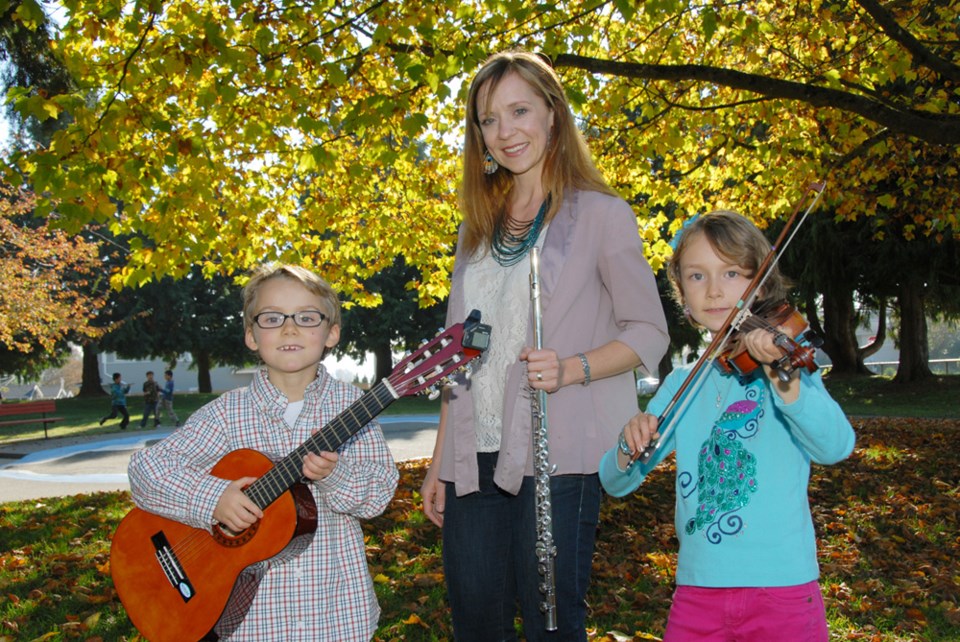For Burnaby mom Corina Kuban, music education is an important part of her children’s development.
Kuban has three kids, two of which attend Burnaby’s Suncrest elementary, where students have regular music classes.
“They love it. They do a lot of musical games. I think it’s a nice break from the more sit-in-your-desk academic work, and I really feel they are learning a lot,” Kuban says. “Studies have shown that it does help the brain to develop.”
But according to a new report, released Friday (today) by the B.C. Music Educators’ Association (one of many specialist associations affiliated with the B.C. Teachers’ Federation) British Columbia’s children are not getting their recommended dose of quality musical instruction.
Suncrest music teacher Pam Hetrick was part of a group that authored the report, Speaking Out for Elementary Music Education, which was based on surveys sent to every school district in the province.
The authors were trying to figure out whether music was being offered in elementary schools, and if the teachers were properly trained in the subject.
According to Hetrick, they received a 93 per cent response rate, and two significant findings emerged.
“There is a need for continued advocacy in this area. It isn’t getting taught in all schools, and the other key thing that emerged is a need for quality elementary music education,” she told the NOW.
According to the report’s findings, music is not taught in all B.C. schools, or in some cases, it’s taught by people who lack proper training.
Part of the problem, according to Hetrick, is that music instruction for elementary students used to be offered in universities, but about 10 years ago, the Teacher Regulation Branch (formerly known as the B.C. College of Teachers) decided that elementary music was not a teachable subject for certification.
“The result, as you can imagine, is universities don’t have elementary music teaching courses. There’s no way for a teacher to be certified in that subject because it doesn’t exist, yet there are still (music teaching) jobs, so it’s not a good situation,” Hetrick said.
Hetrick would like to see the Teacher Regulation Branch consider music a teachable subject for the elementary school level, more government funding for properly trained music teachers, and proper space in schools for music teachers to do their jobs.
“Clearly, we are not serving our children if we are not doing this, if we don’t have this for them. There’s no end of research on how important it is to have music for children,” she said.
Burnaby, however, is an exception to the rule. According to Hetrick, music is taught in every local elementary school, thanks to a previous administrator who ensured well-trained music teachers were hired for each school.
While Kuban is happy her children are learning about music in Burnaby, she finds B.C.’s lack of consistent, quality musical education problematic.
“I think it’s a real loss for our culture. I feel there are fairly few things that unite us as Canadians, and I think music could help unite us,” Kuban said.
The report, Speaking Out for Elementary Music Education, will be released today at the B.C. Teachers’ Federation development conference for its 32 provincial specialists associations.
[email protected]



